Hollywood & Spine Archive: I Must Book You
An overview to the novelization of ROCKY IV, originally published November 2021.
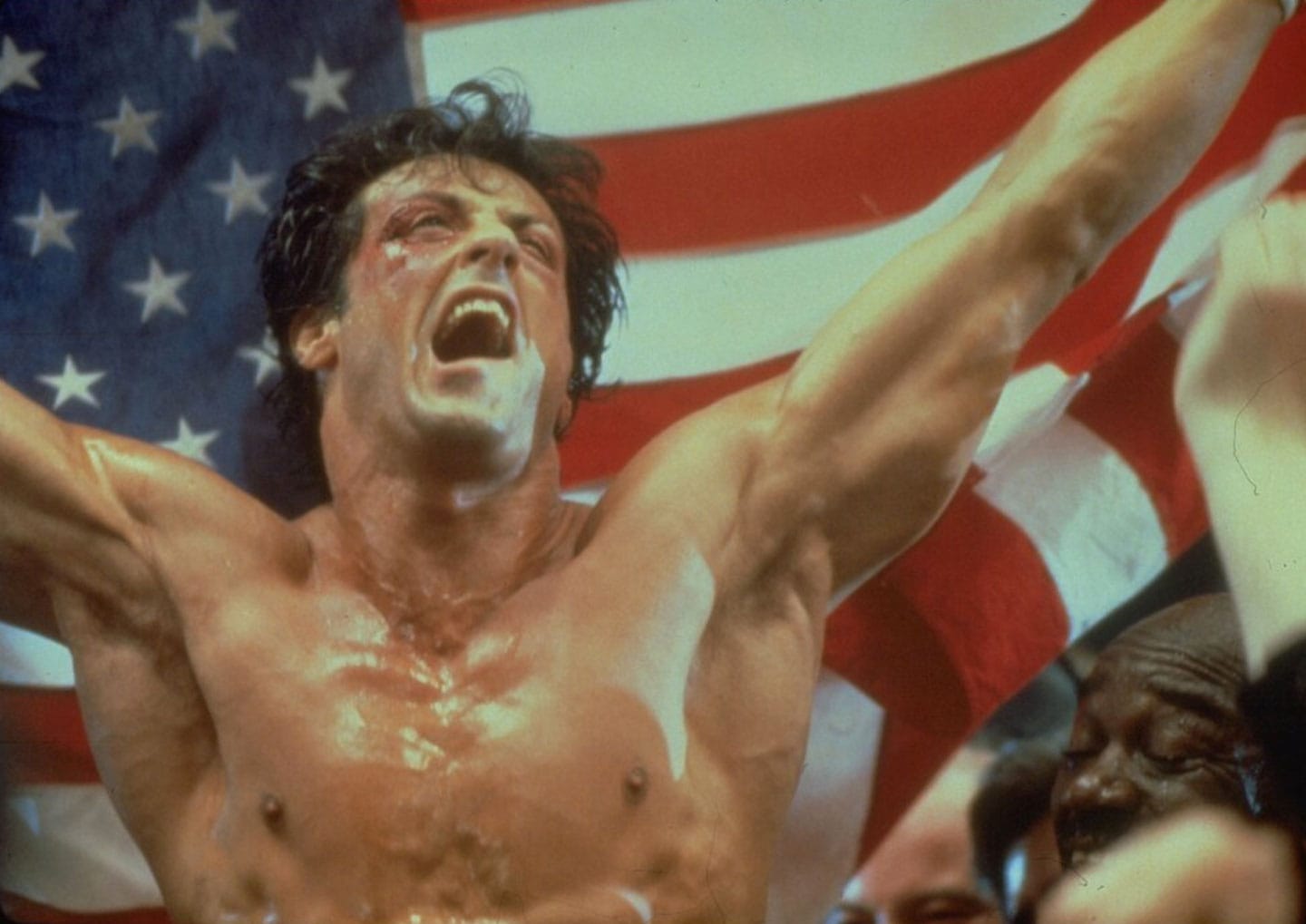
My Rocky ranking - not counting Creed films - is as follows: I, III, IV, Balboa, II and, in a precipitous drop, V. With that in mind, the Rocky IV novelization is probably better than this film...deserves? I don't say this lightly, because I believe in the power of any film or novelization to be as good as it should be. But Rocky IV is mostly empty calorie epilogue - but here this book is, trying to force it into the mold of the first three films. Go figure! (originally published 11/22/2021)
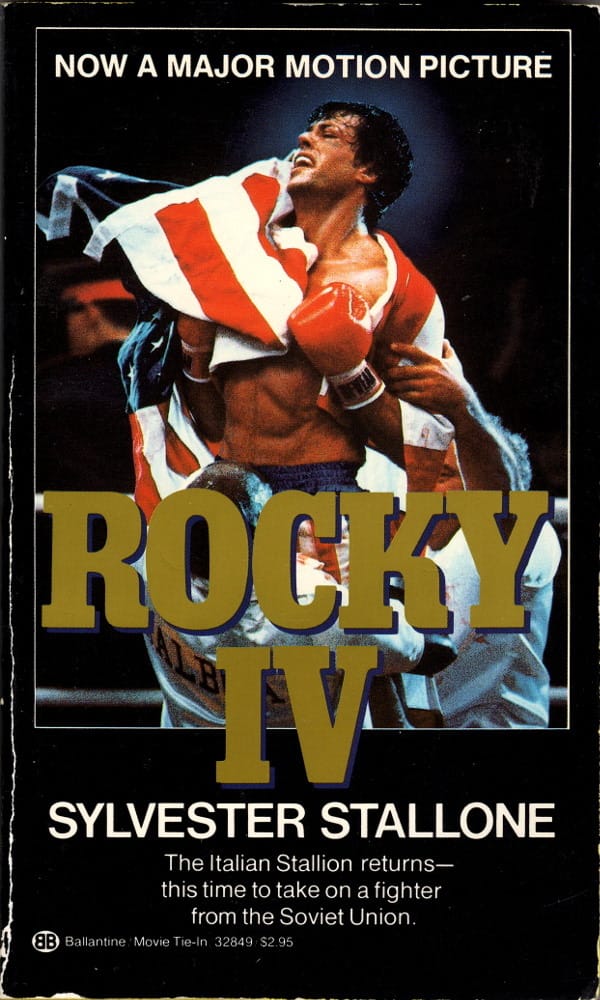
Rocky IV by Sylvester Stallone; based on his screenplay (Ballantine Books, 1985)
The pitch: Having reclaimed the heavyweight boxing title in his third film, Rocky Balboa seemingly has nothing to prove - until a powerful Soviet boxer changes the sport forever. Can he topple his most dangerous opponent yet?
The author: Stallone, who was nominated for an Oscar for his breakthrough Rocky script and wrote and directed nearly all of the franchise's five sequels, was previously credited as the writer of the Rocky II novelization. While no one has claimed to be a ghostwriter for the book, it's worth noting that Stallone reportedly attempted to get Paula Gosling's 1974 novel Fair Game republished under his byline when it became the basis for 1986's dismally-received Cobra. (The mid-'80s were a time of unchecked Stallone hubris, as we'll get into below.)
The fight card: Taken together, the first three Rocky films compose a pretty great story arc: a Philadelphia nobody gets a chance to prove he's a somebody in the boxing ring, gets handsomely rewarded for that proof, loses it all and gains it back. The performances, the cinematography, the music - it's all great, and it would have been fine if Rocky III marked the end of the series. Of course, that is not what happened.
Rocky IV is a weird epilogue or interlude to that main series. It's the shortest of the series (a fat-free 90 minutes, featuring three montages in the back half), the only one of the films to lack original score from Bill Conti - he opted for the junior-varsity Rocky story of The Karate Kid, so synthesizer whiz Vince DiCola was called upon - and the first to be supported by a soundtrack album of pop tunes (including two Top 5 singles: Survivor's "Burning Heart" and James Brown's "Living in America").
It's also the movie where Rocky Balboa and friends come closest to the hamfisted flag-waving of the Rambo sequels, something previous films would never do. The nominally patriotic Apollo Creed (Carl Weathers) re-enters the ring to prove his mettle against towering Soviet boxer Ivan Drago (Dolph Lundgren) in a narrative that gets tangled up between pat patriotism and the (far more intriguing) restless spirit of a fighter. It only sort of matters, of course, because Creed pays for the fight with his life, and Balboa travels behind the Iron Curtain to take a stand of his own. (Decades later, this plot bore surprising fruit in Ryan Coogler's 2015 knockout Creed and its decent 2018 sequel, starring Michael B. Jordan as the illegitimate son of the late champion who teams up with Balboa to find his way as a fighter and eventually relitigate the Drago match with the disgraced fighter's son.)
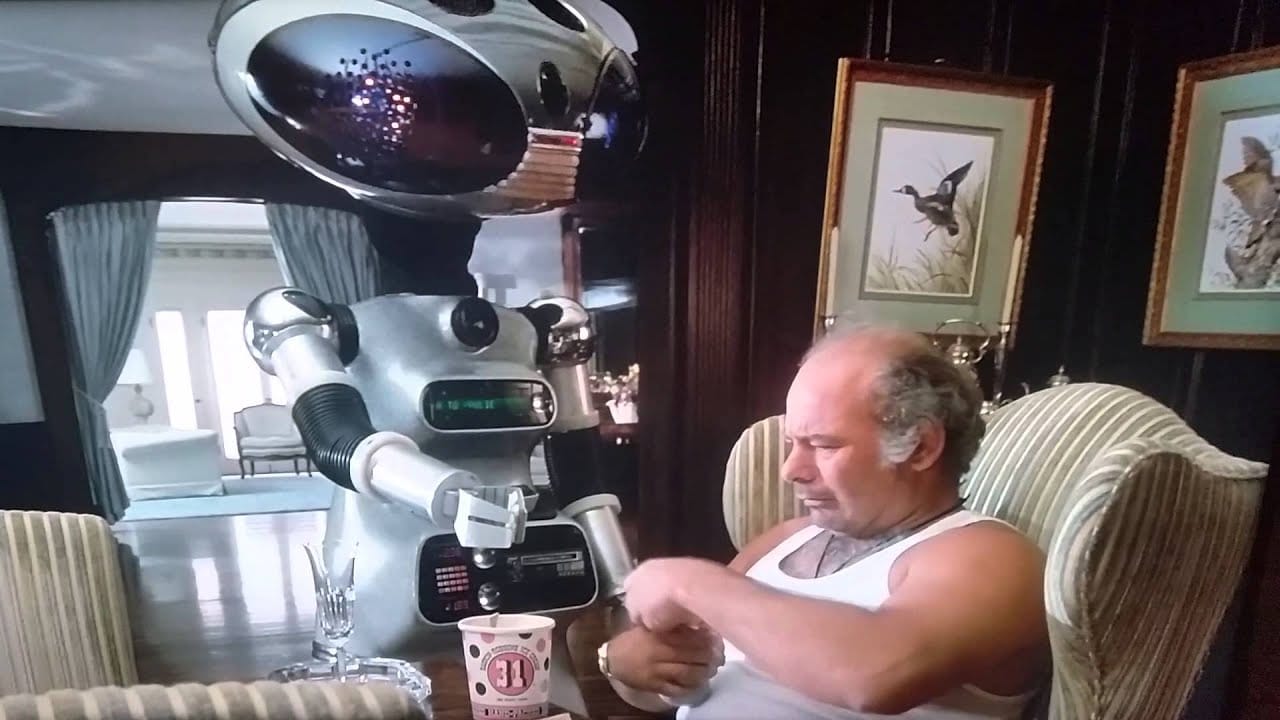
In 2020, Stallone surprised fans by taking the blame for Rocky IV's perceived clunkiness, announcing his intentions to recut the film to better reflect his growth as a filmmaker. (Initial press reports promised 40 minutes of unseen footage - a shock, considering the original film's brevity; ultimately, the new cut is only about four minutes longer.) In a revealing feature-length documentary that preceded the new cut's release, Stallone took himself to task not only for killing off Creed - he should've been crippled instead, the star insists - but the sloppier editing and blocking of the fourth film compared to his own work on the first two sequels. His constant mea culpas dwell on his then-unchecked ego; indeed, Rocky films still kept bringing in staggering sums of money at the time. (Stallone attempted to atone by bringing back the first film's director, John G. Avildsen, for 1990's Rocky V - ironically, the absolute nadir of the series.)
While the new cut, ponderously titled Rocky IV: Rocky vs. Drago, succeeds in some ways, it fails in others. The fights are more tightly-edited, and reinstated character moments like the more emotional version of Creed's funeral are brilliant. But stripping some the mid-'80s artifice from the film leads to odd decisions like tracked score cues of Conti's trading jabs with DiCola's keyboard pieces, or a bizarre re-edit of the film's first quarter that sacrifices several existent character moments (like Balboa and Creed's off-the-books fight that ended Rocky III) in the name of getting rid of the wacky robot gifted to Rocky's brother-in-law Paulie (Burt Young). For a good chunk of the movie, Stallone feels like a supporting character - a real cognitive dissonance, given that he's, y'know, the title character.
The existence of this new cut out in the world of course means it's worth investigating the novelization to find out how much of that extra character development was hanging around more than 35 years ago. The surprising answer: all of it, and maybe even a little more.
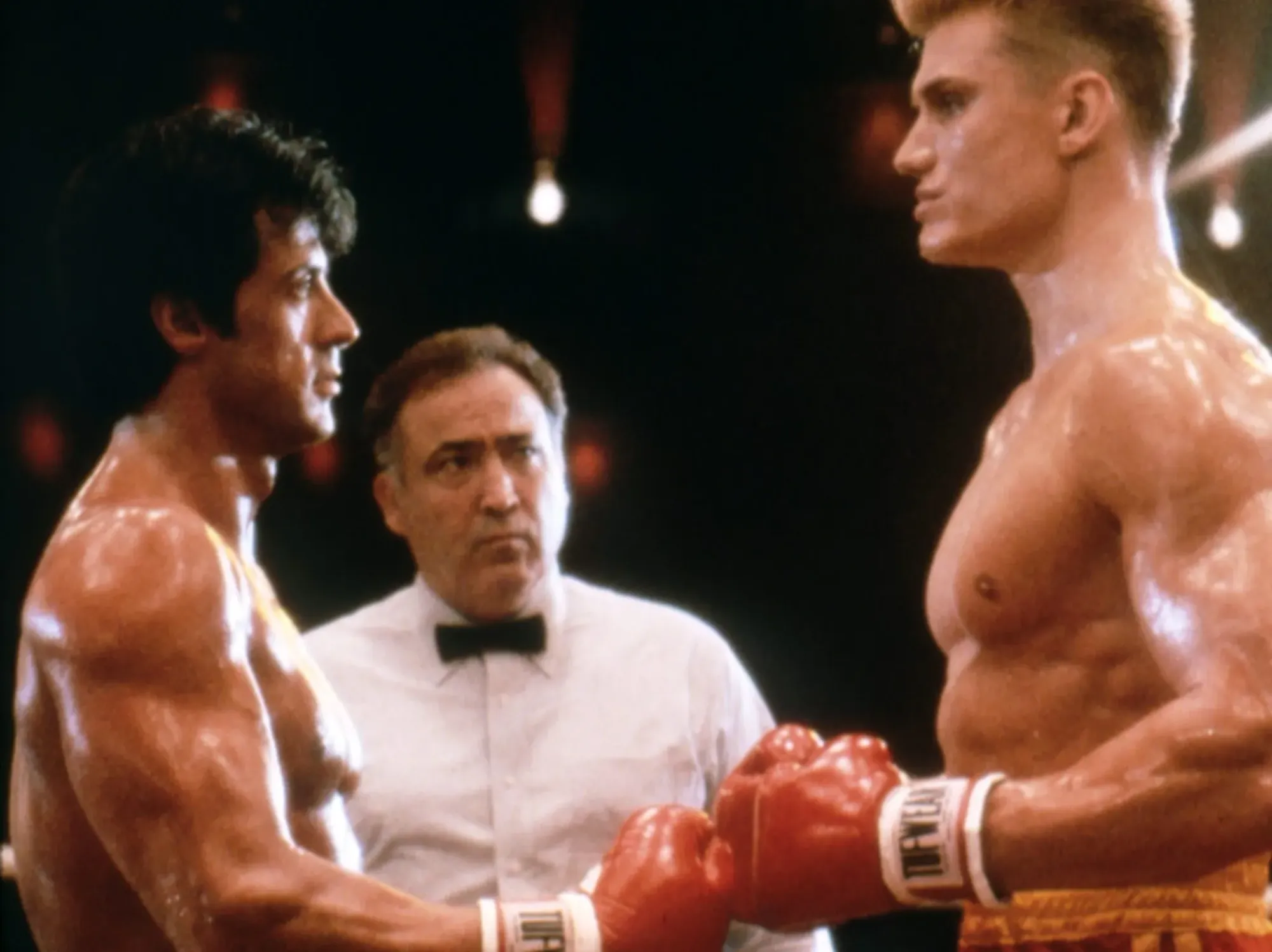
What really jumps out about the Rocky IV novelization is the easygoing but rich nature of its prose. Stallone's most deceptive gift as a screenwriter is his gift for constructing very unique characters - and whether he wrote this book or not, those characters are well balanced in their depictions here. There's a fair amount of prose painting the film's locations, some of it bordering on historical travelogues - including Las Vegas (where the Creed-Drago fight takes place) and the Soviet Union. The results almost border on book report-like throat clearing, but it's a fine attempt for a Rocky story.
The attempts in the new cut to make Drago less of a caricature are on display here, as well. We get a fair amount of backstory on the boxer, a former Soviet laborer discovered by a documentary crew and molded to be the nation's sports figurehead. His cares in the book are only the fights themselves and his undying affection for his wife Ludmilla (played by Stallone's then-real life partner Bridgette Nielsen). He even gets to speak a little more, though his most iconic lines are either less powerful ("I will break you," he tells Rocky before their fight) or given to other characters (here, it's his trainer Rimsky who says of Creed, "If he dies, he dies").
And the pacing of the book is no less oddball than the movie itself - a common thread in Rocky novelizations past. Rocky IV spans 156 pages, and the back half of the movie - Rocky's trip to Russia, intense training and victory over his opponent - takes up the last 28 pages. It's more of a sprint than it was on film, with none of the killer music that came with it.
The cutting room floor: A lot of the extra stuff you see in the new Rocky IV cut - extra moments between Rocky and Apollo or Rocky and loyal wife Adrian (Talia Shire), a tense meeting between Balboa and the boxing commission that sees him rescinding his title to face Drago - is in the novelization. But there's even more that didn't make any cut of the film. Some of it is striking, and some of it is truly bizarre.
The book's first third features a really interesting shade for Balboa in the form of a reading computer program he not only uses himself (Stallone's simple delivery as Balboa is a stunning cover if you've ever heard him discuss Eugene O'Neill in interviews) but encourages his son Rocky Jr. to utilize, as a way to value brains over brawn. It feels like it anticipates some of the conflict of Rocky V, which is one of those nice unintentional moments of cohesion that novelizations sometimes offer. Some extensive segments of Rocky, Apollo and Paulie in Las Vegas make for noteworthy character development. (The boxers train while Paulie tries and fails to take advantage of Sin City - had this been filmed, it would've given more for Young to do in the new cut now that his robot is retracted. These segments also offset a much less tense write of Creed and Drago's pre-fight press conference.)
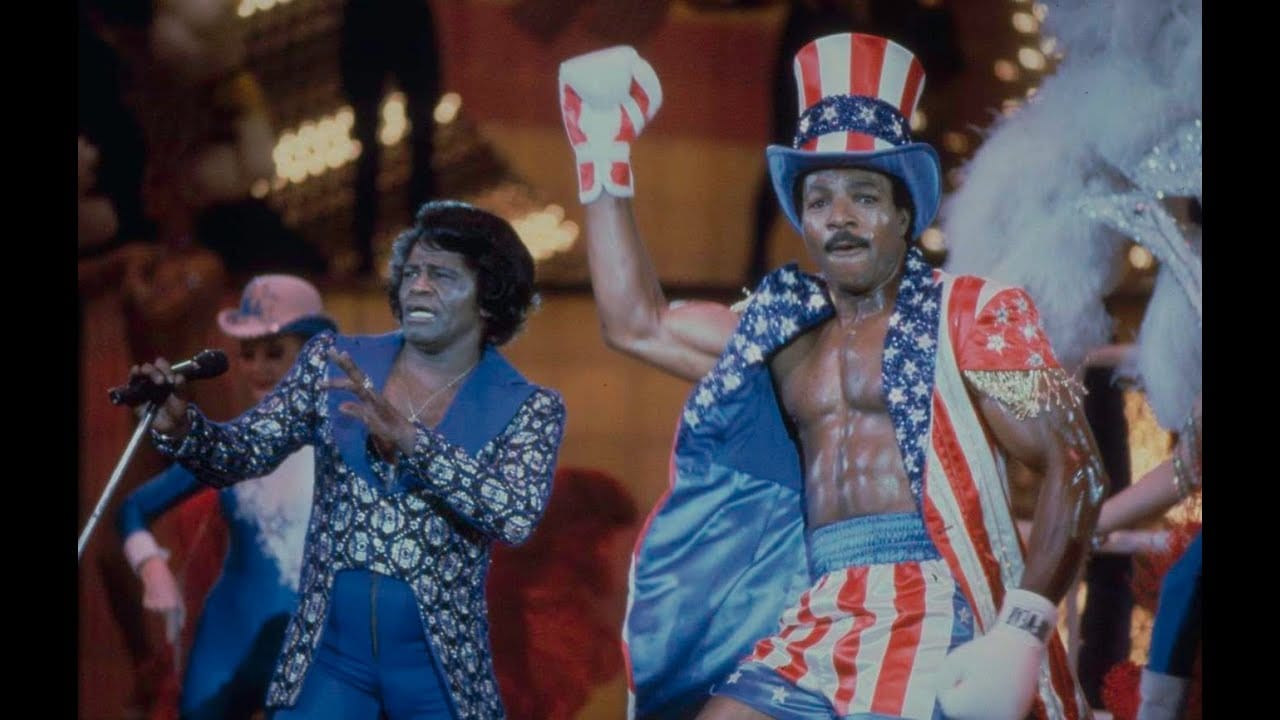
A brief but notable deviation in the Creed-Drago fight - sort of an alternate take on how Stallone edited it for the new cut - is that Drago's killing blows happen after the second round bell is rung. Rocky is too late to stop the violence, a real pang at the heartstrings for the reader when it comes to Rocky's feelings through the rest of this story.
After Creed is killed in the book, a frankly baffling amount of exposition is thrown at the reader - some of it shockingly offhanded. The concern of whether or not Rocky can beat Drago is compounded by two things that don't make the movie: a visit to Balboa from two government figures worried that a loss would make the country look terrible - more dopey politicking - and a revelation that Adrian is pregnant with another child before Rocky travels to Russia. (What makes this bizarre is it's referred to in maybe two lines and never brought up again, nor did it come up in the next film - so it's wise that it never made the final cut.)
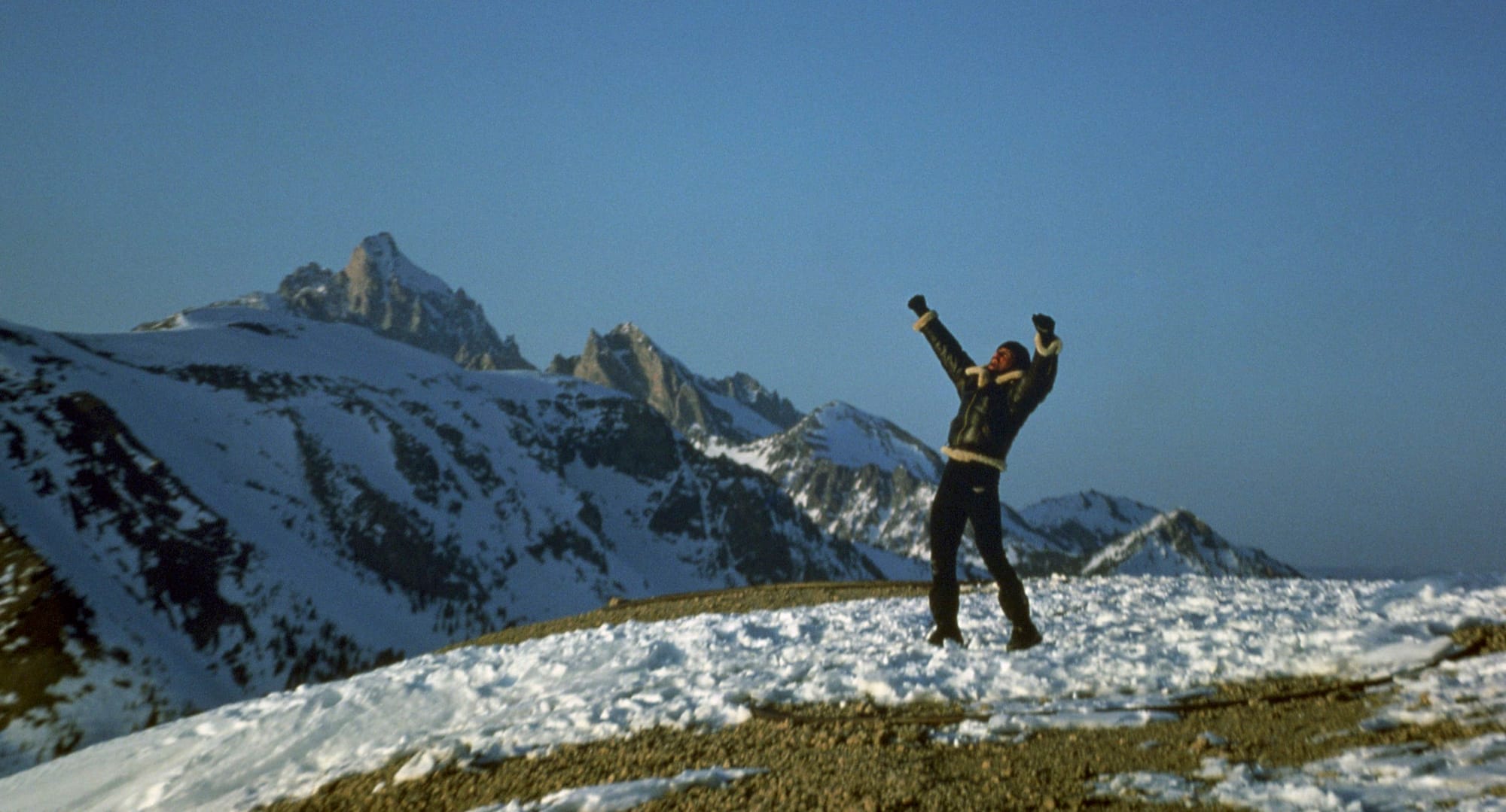
The best of these scenes - maybe the best addition in the whole book - is an abortive attempt of Rocky's to train for the Drago fight in America before holing up in a cabin outside Moscow. In a neat inversion of Rocky III, a more focused Balboa is frustrated by what a media circus Mickey's old gym becomes - and there's a humorous paragraph that gets us up to speed with all the side characters that didn't appear in Rocky III or IV, from Father Carmine to Rocky's old sparring partner Spider Rico, and even Tony Gazzo, the loan shark Rocky used to work for. (Hilariously, Gazzo's only briefly mentioned, noting that his business ended when someone shot him dead.)
The final bell: If I can change, and you can change, everybody can change...except both the novelization and the new cut of Rocky IV prove there's no definitive, superior version of the film waiting in the wings. Yet despite some pacing issues, the book has got enough material to keep fans' hearts on fire.
